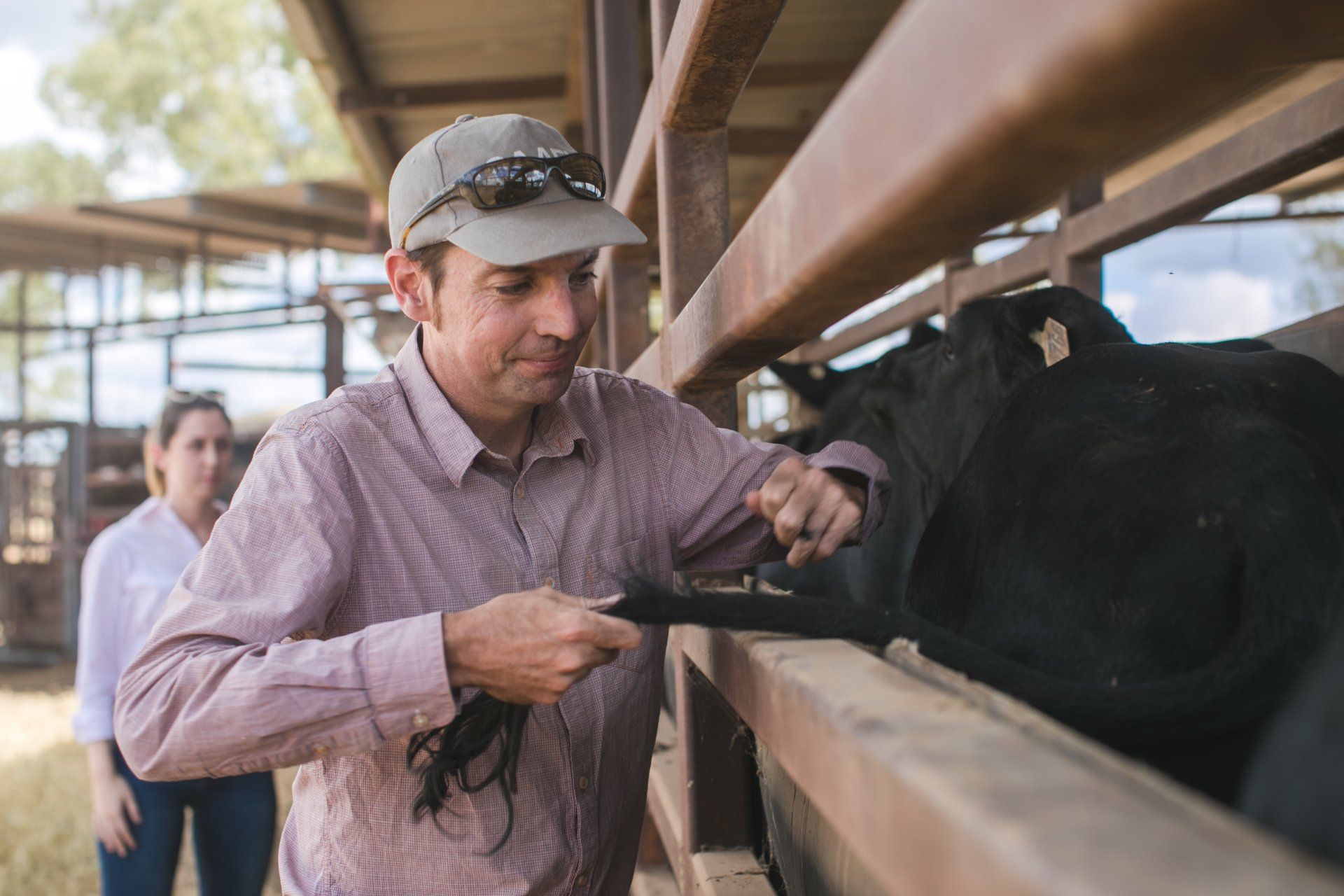1MG FlippingBooks
Genomic research links autism genes to cattle temperament
Elizabeth Gracie

University of Queensland (UQ) researchers have discovered a strong genetic link between the genes that influence cattle temperament and autism in humans that has the potential to improve both the welfare of meat cattle and overall meat quality.
Originally published in Genetics Selection Evolution, the genomic study analysed the DNA variants most common in people with autism and found that the same DNA variants in those genes were likely to make cattle fearful in new situations and have reactive temperaments.
The interdisciplinary study is a world first, and the only time a whole-genome sequencing has been utilised to analyse temperament in beef cattle.
Professor Ben Hayes, a genomic expert from UQ involved with the study said that the findings do not mean that cattle have autism, rather they share an overlap of genes with humans who have been diagnosed with autism.
“The research doesn’t mean that cattle have autism; rather that cattle share an overlap of genes with humans which are critical in brain function and response to fear stimuli,” said Hayes.
“We found that genes known to contribute to autism disorders also influence temperament in cattle.”
According to Hayes, the research team knew that it was highly probable that genetic factors would significantly influence temperament in cattle, so the decision to analyse the genes that cause specific behavioural traits like autism in humans and explore whether they too could influence cattle temperament seemed like an obvious choice.
“Temperament is an important trait for day to day management of cattle,” said Hayes.
“As I’ve found talking to farmers over the years, it can be distressing having an animal that has a poor temperament in the mob and stirs up all the other cattle putting them into a state of stress.
“If we can identify those animals early, or breed to eliminate them, we can potentially reduce the stress of the whole mob.”
The genomic research also has great implications for both animal welfare, and for farmworkers handling the cattle, specifically during ‘flight time’ where cattle move after release from an enclosure.
“What a producer wants is cattle that move calmly and slowly from the enclosure, rather than an animal that charges out in an aggressive or stressed state,” said Hayes.
“Our study found flight time is about 35 per cent heritable, which is very significant.
“It means you can make a lot of progress by breeding for better temperament - it is about the same as milk production in dairy cattle, and we’ve made big breeding gains there.”
The temperament analysis was conducted by looking at 28 individual data points on the 9000 northern cattle Bos indicus breeds and was validated in a further 80,000 Bos taurus cattle from Ireland.
Professor Hayes said that the use of such temperament data will help beef cattle producers in the future buy cattle for breeding and meat purposes.
“It means a producer will be able to use a sample of tail hair which contains DNA to quickly get information on the genetic value of their animals for temperament and fertility,” said Hayes.
UQ researchers were aided in their research efforts by the beef industry and international collaborators from Ireland and Brazil.
NEWS

Prodoz, a Proudly Australian and family-owned agribusiness, based in Melbourne, is strengthening its positions as national/international leader in advanced crop – science solutions through a growing portfolio of global innovation partners and a distribution footprint supported by all major distributors - includes Nutrien Ag, Elders, Lindsay Rural and Independent Rural stores.

Trace minerals are required for optimal growth, reproduction, and immunity. Optimising trace mineral status relying solely on oral supplements across a herd may fail because of variation in individual intake and reduced absorption due to antagonism of other ration components and minerals. The use of injectable trace mineral supplements has been associated with positive reproductive outcomes including improved conception rate, increased odds of pregnancy and greater final in calf rate. A study conducted on 2,168 dairy cows, administered injectable trace minerals, four weeks prior to calving and again four weeks prior to the start of mating showed treated animals had a 3.3 per cent greater final in-calf rate, and a reduced time from start of mating to conception, compared to control animals 1 . The Importance of B12 Dr Carl Eden, Technical Services Veterinarian with Boehringer Ingelheim says “Vitamin B12 is sometimes referred to as a ‘super vitamin’ because it is only required in very small amounts but vital to many essential metabolic pathways. However, demand for B12 can vary considerably during the year and we see serum levels of B12 fall at critical times, such as the first few months after calving.” Vitamin B12 contains cobalt, so deficiency in cobalt can lead to deficiency in vitamin B12 because ruminants get most of their B12 as a byproduct of ruminal fermentation where the bacteria in their rumen assemble B12 from cobalt for use by the cow. Sub-optimal trace mineral and vitamin B12 status at calving, mating, and drying off has been shown to negatively impact growth, reproduction, and immunity. Using a trace mineral injectable containing vitamin B12 can improve trace mineral and vitamin B12 status at these critical times. Marks-Min with Vitamin B12 – The Evidence In the largest trace element study to date, Marks-Min Injectable Trace Mineral with Vitamin B12 demonstrated remarkable results when compared to a reference trace mineral injection. “Given the differences between Marks-Min and other products on the market, we wanted to generate a compelling data set to demonstrate how effective it was compared to the pioneer product. We entrusted this work to a third-party research company” says Dr Eden. “We chose farms that were at the top of their game from a reproductive perspective. We made sure that the farms had no evidence of trace element or vitamin B12 deficiencies or excess.” Across all outcomes of interest, Marks-Min demonstrated clear non-inferiority when compared to the reference product. Outcomes measured included submission, pregnancy and conception rates, and six week in-calf rate. Marks-Min demonstrated it is highly suited as an alternative treatment to the reference product. Reference: 1. Hawkins, D., and B. V. S. Franklin. New Zealand Dairy Veterinarians Newsletter 24 (2007): 12-16 Company website: livestockfirst.com.au Company email address: CustomerCare.Australia@boehringer-ingelheim.com Company video: https://vimeo.com/1138807630?fl=pl&fe=cm












